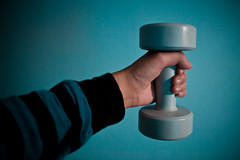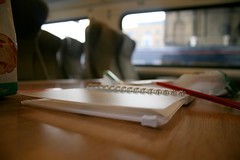banter | subscribe
 Remember when I said I wanted to learn how to play the Phantom of the Opera overture on the piano? Well here’s some progress. I’ve got my keyboard out once again! It was hidden away for a bit since I moved it away from my room to make room for people to fix my windows, this has been over a month and I’ve simply given up on waiting for them to come so I’ve decided to move my keyboard back and start playing again.
Remember when I said I wanted to learn how to play the Phantom of the Opera overture on the piano? Well here’s some progress. I’ve got my keyboard out once again! It was hidden away for a bit since I moved it away from my room to make room for people to fix my windows, this has been over a month and I’ve simply given up on waiting for them to come so I’ve decided to move my keyboard back and start playing again.
Man it’s been a long time since I’ve touched a keyboard! The keys are all dusty and my fingers are twitching to play some random chords and arpeggios. After doing some random jams, I started to look into playing the Phantom of the Opera overture. Turns out it’s A LOT harder than I had imagine it’d be. There are so many bits to play on both hands! Things you’ll not notice on a naked listen, I managed to download a midi of the track and slowly worked out the notes from that (I can’t read music, and there isn’t music for the overture (that isn’t watermarked before you ask)) so yeah, it’s back to good old listening to it and playing it by ear and memory. That’s how I learn pieces anyway. It’s surprising how many songs I have hidden inside my head. Sometimes it requires a jog of my memory but I’ve never relied on written music to play a piece, it’s the best way but I’m simply not capable of reading it for now, not to mention I’m impatient to learn (maybe this could be another todo?) So yeah. The piece is pretty hard, but that doesn’t stop me from learning it slowly. When you want to learn something so hard, you just charge onto it head first and do your best, practice does indeed make perfectomundo.
 I had a healthcheck at work on Friday, the test measured all kinds of stuff including blood pressure, fat, bone mass, how your stomach is doing, basically how healthy you are. Mine turned out pretty well, though I’m still pretty young compared to the other people at work. I was told to include exercise in my life to ensure I increase my metabolism when I grow older. He suggested to just do some weights so the day after, I bought some. It’s been pretty fun, my arms ache right now but I feel productive. Lets hope this continues! Will be a 43 thing to keep this up. I’m hoping to keep this up for at least 2 months. Will have at least 30 minutes of exercising to qualify as a session.
I had a healthcheck at work on Friday, the test measured all kinds of stuff including blood pressure, fat, bone mass, how your stomach is doing, basically how healthy you are. Mine turned out pretty well, though I’m still pretty young compared to the other people at work. I was told to include exercise in my life to ensure I increase my metabolism when I grow older. He suggested to just do some weights so the day after, I bought some. It’s been pretty fun, my arms ache right now but I feel productive. Lets hope this continues! Will be a 43 thing to keep this up. I’m hoping to keep this up for at least 2 months. Will have at least 30 minutes of exercising to qualify as a session.
 Turns out I’ll be going back to New York again. This time it’ll be a quick sneak trip from Tuesday to Friday. I don’t feel as excited as I should be, perhaps I will tomorrow. I suppose a checklist is in order? Not sure whether I’ll get to do much there, will probably get a cheeky visit to MoMA but that’s about it. Anyway, on to the list:
Turns out I’ll be going back to New York again. This time it’ll be a quick sneak trip from Tuesday to Friday. I don’t feel as excited as I should be, perhaps I will tomorrow. I suppose a checklist is in order? Not sure whether I’ll get to do much there, will probably get a cheeky visit to MoMA but that’s about it. Anyway, on to the list:
- Suitcase
- Some big bucks
- Travel documents: Passport, tickets
- Clothes for travelling (sunny)
- Sunglasses
- Toilet stuff
- Psp and usb cable
- iPod and usb cable
- Phone and usb cable
- Tripod!
- Usb to mains adaptor (otherwise we have no use for usb cables)
- Dslr camera (no need for charger)
- Notebook
- Company laptop
I think that’s about it. Keeping it nice and simple. Anymore and it will destroy me. It’s going to be nice and sunny so yay! Was going to get a giant mug that says “I <3 NY” but I’ll wait until someone makes an “I <3 My Tissues” mug haha.
Things are so much clearer when you actively write about something you intend to do, even if it’s embedded in your subconscious. Once it’s out and about, you feel clarity in what you’re doing and you “know” what you’re doing. What you’re committed to do.
For this case, I’ve been ensuring that everytime I’m asked whether I need a bag, I take a moment to reflect on whether I NEED and in most cases, I really don’t. So I reply with a no to them.
That’s the easy bit done, always reviewing on your bag situation when asked, but when people assume you want a bag and start packing it, it’s frustrating on both ends to stop them from doing it. Nonetheless, that’s not going to stop me from saying no to shopping bags, previously I was doing it passively, now I need to actively stop them from doing it, you get used to it, some people are confused on why you want them to take it back out and some are more than happy to save a plastic bag. Nonetheless the goal is to reduce the amount of bags used.
I’ve also began selectively buying dvds and games too. Reading an article about a guy who threw away all his boxes made me review my current dvd collection, it’s pretty big. So keeping things digital will hopefully help me reduce clutter on my bookshelf. Avoiding films I wouldn’t watch or games I wouldn’t play is the key. It does get tough when they are super cheap. I might look into doing rentals. I really need to escape this desire to hoard and collect things. Even innocently buying a dvd will ensure that the future I’ll be questioning why I’ve bought it and only watched it once.
Anyway, dvd will most likely be another 43things, but then again that’s not a clear goal since you can’t really measure it (like this one)
 Well, i’ve finished reading Getting things done. Some parts I skimmed since the author tends to boilerplate quite a lot in the book. What I thought was lacking in the book was a reference section where everything is condensed into a few pages for a quick recap.
Well, i’ve finished reading Getting things done. Some parts I skimmed since the author tends to boilerplate quite a lot in the book. What I thought was lacking in the book was a reference section where everything is condensed into a few pages for a quick recap.
So what did I think of it? It’s not bad at all. It does base most of it’s stuff on manual tools such as the retro pen and paper and loads of folders for filing. I fortunately am in a position where work is digitally stored and categorised. The hard work is literally done, leaving me with my inbox to sort out. This (and remember the milk) are the areas I will working GTD on. Though you can see the difficulties of implementing stuff that’s mainly done via pen and paper hard on the PC.
The processes it teaches are quite similar to what I originally had. i worked at a zero inbox methodology where I treat each email as something to action, they are filled into appropriate sections once I’m finished with them so a zero inbox would literally mean I have done all my tasks and have nothing to do.
The book teaches you to store things under sections such as “next action” for those tasks that need to be completed asap, “waiting for” for tasks that require following up by someone and “tickler/someday” for things that can be done… someday. I was particularly keen on the “someday” folder as it was something missing from my system, work out of the ordinary were collected into the system and stored somewhere where I knew I could access and start work on if I felt it was time. Everything begins to feel more logical when you start implementing it though. It’s hard to persuade someone to implement this since people tend to be resistant on their current methods and systems. Bringing a new system introduces the idea of “when it’s not broken, don’t fix it” so I’m quite stuck in telling people what they should do. But I suppose I can give my feedback on how the book has changed the way I work.
I’ve not implemented the task full yet (so I’m not counting that as complete) but soon I will.